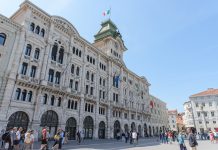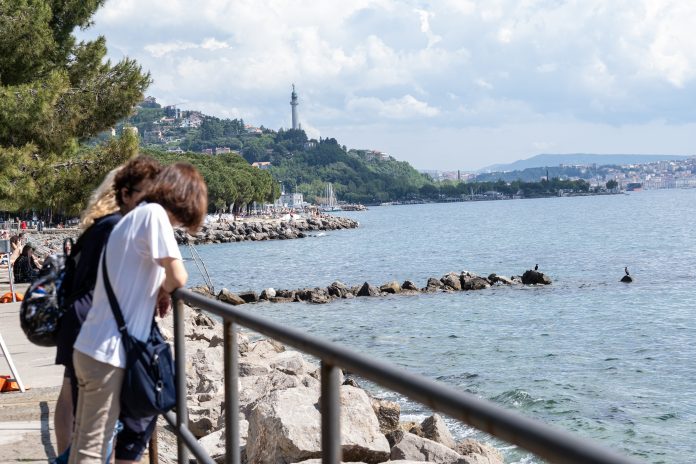by EH
As Italian dignitaries and diplomats gathered at the Italian Embassy in Vienna to mark the Festa della Repubblica, one regional official had a clear message for the host country: Friuli Venezia Giulia is Austria’s second home.
Speaking at the celebration, where Friuli Venezia Giulia was welcomed as the guest region, Sergio Emidio Bini, the region’s Councillor for Productive Activities and Tourism, highlighted the growing bond between northeastern Italy and its northern neighbor.
“Given the large number of tourists who have chosen our region as a holiday destination, we can confidently say that Friuli Venezia Giulia is the Austrians’ second home,” Bini declared in front of a crowd that included Italy’s Ambassador to Austria Giovanni Pugliese, Permanent Representative to International Organizations Debora Lepre, OSCE Representative Andrea Cascone, and numerous business leaders.
According to Bini, Austrian tourists spent 1.8 million overnight stays in Friuli Venezia Giulia in 2024 alone—a figure that underscores not just a post-pandemic rebound in regional tourism, but a deepening cross-border connection. “This is solid proof of how attractive our region has become for this key group of visitors,” Bini said, noting a year-over-year increase in Austrian tourism.
Bini also emphasized Friuli Venezia Giulia’s strategic importance to Austria beyond tourism. “Our region is also your gateway to the sea and to international trade, thanks to the port of Trieste,” he told the audience.
The remarks came as Italy marked its national day abroad, using the occasion not only to celebrate its republican history but to spotlight regional partnerships and economic ties.
Friuli Venezia Giulia, nestled between the Adriatic Sea and the Alps, has long served as a crossroads of cultures—and its growing popularity among Austrian visitors is being seen as a sign of increasingly close economic, logistical, and cultural integration between the two regions.
With tourism numbers continuing to rise and infrastructural projects linking the countries more tightly than ever, Bini’s statement may well reflect more than a diplomatic overture—it may signal a shift in how borders are experienced in this corner of Europe.






























